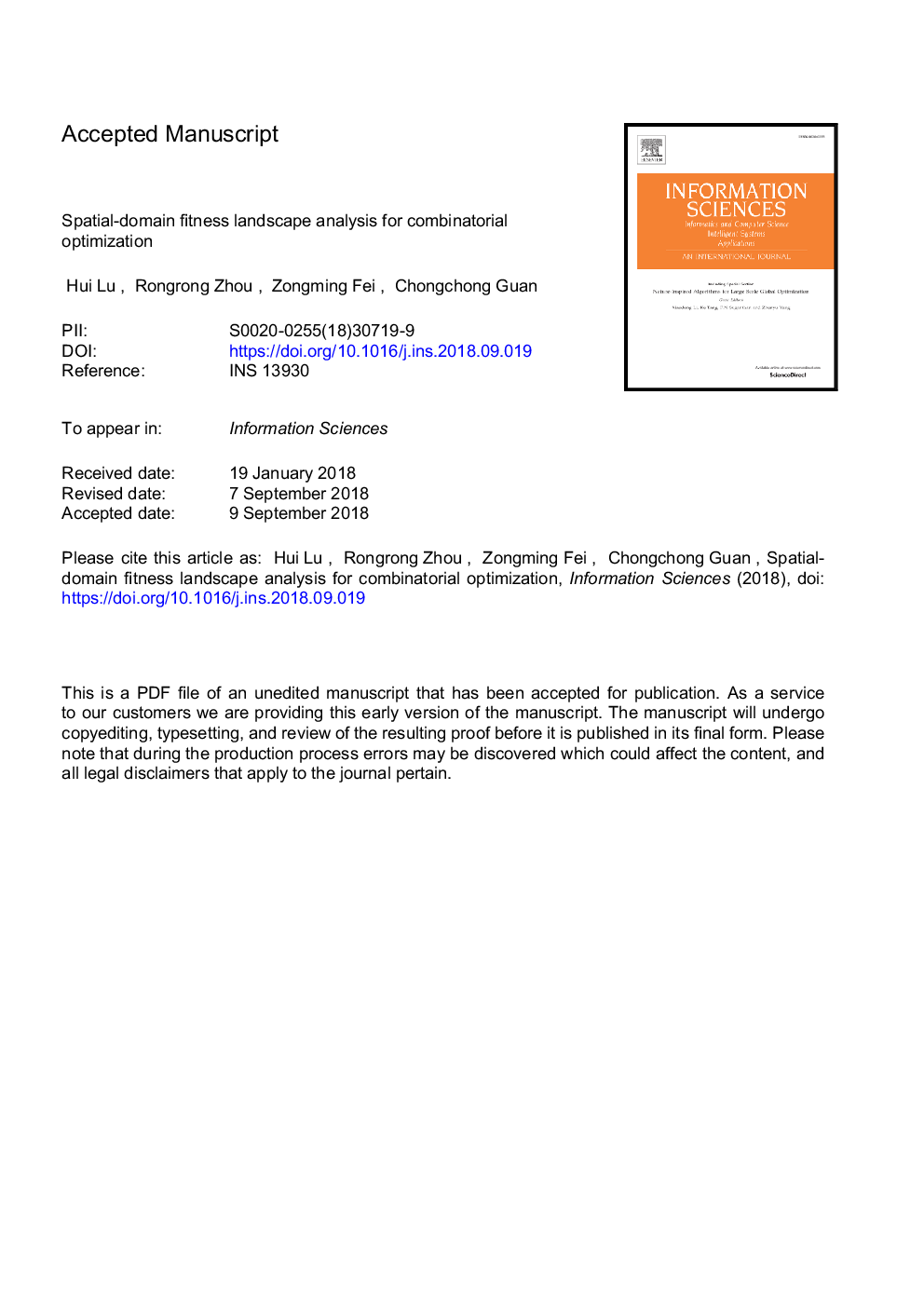| Article ID | Journal | Published Year | Pages | File Type |
|---|---|---|---|---|
| 10150968 | Information Sciences | 2019 | 34 Pages |
Abstract
Fitness landscape analysis has been effectively used to analyze the characteristics of combinatorial optimization problems (COPs) while investigating the behavior of applied algorithms. However, most COPs are high dimensional and an intuitive understanding of traditional fitness landscape analysis is challenging. To address this issue, the present study proposes a spatial-domain fitness landscape analysis framework. This framework aims to visualize the fitness landscapes regarding of a target COP and evaluate the properties of the COP. To construct the landscapes, a mapping strategy inspired by lexicographic order is designed to establish the connection between the high-dimensional and low-dimensional spaces. Accordingly, a spatial-domain parameter, namely, the slope of the digital elevation models (DEMs), is utilized to assess the ruggedness of landscapes. As an auxiliary value, the neutrality ratio is introduced to reflect the degree of neutrality. In addition, a parameter control mechanism based on these landscape metrics is advanced to enhance the adaptability of the algorithm. Finally, the experimental results reveal that the spatial-domain fitness landscape can help extract the characteristics of COPs and study the behavior of algorithms effectively. In addition, the proposed adaptive parameter control strategy significantly improves the performance of the algorithm for solving COPs.
Related Topics
Physical Sciences and Engineering
Computer Science
Artificial Intelligence
Authors
Hui Lu, Rongrong Zhou, Zongming Fei, Chongchong Guan,
